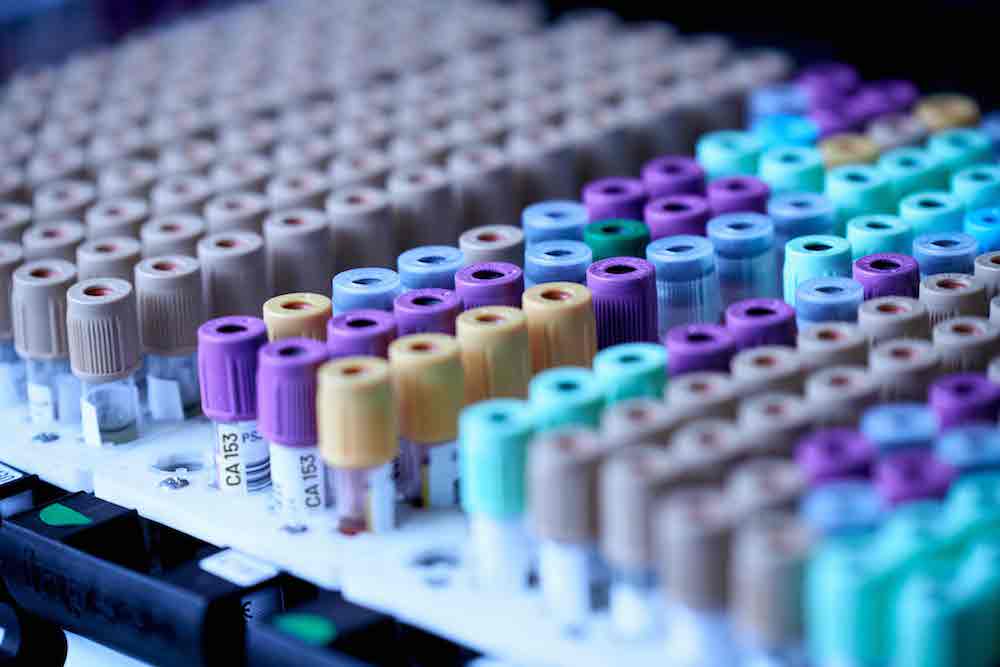All cancer patients should be offered genomic profiling of their tumours at the point of diagnosis and during treatment to shape care and track how their disease evolves and responds to treatment. These were the conclusions of a UK consensus group, convened by the Institute of Cancer Research, London, published in July 2022, which said it was critical for the National Health Service (NHS) to ensure patients can access more personalised and effective treatments as part of standard of care.
“It’s essential that the regulations that govern clinical trials and the approval of new tests and treatments keep pace with the rapidly moving science,” says Kristian Helin, Chief Executive of the Institute of Cancer Research, London. “At the moment, it can be hard to get new biomarker tests developed, approved and made available for patients. That can in turn act as a disincentive for companies and academics to develop new biomarkers to guide treatment in the future.”
Biomarker tests look for genetic, protein or imaging ‘markers’ to identify which patients are most likely to respond to treatment. “Biomarker tests can direct treatment precisely to the patients who will most benefit, which can both improve the lives of patients and increase the cost-effectiveness of treatment for the NHS,” explains Helin.
The consensus group, convened by the Institute of Cancer Research, included nine leading institutions, charities, stakeholder groups and life-science companies: Cancer Research UK, the Association of the British Pharmaceutical Industry, Association of British HealthTech Industries (ABHI) and Leukaemia UK, along with the drug companies AbbVie, AstraZeneca, Bioclavis, Bristol Myers Squibb, and Precision Life.
The consensus group issued a series of 13 statements calling for a series of changes in the way biomarker tests are developed, made available and routinely used in the UK. Changes identified include:
- Increasing the number of precision medicines developed with a companion biomarker test to direct treatment precisely at those patients who benefit most. To achieve this, barriers to pharmaceutical and diagnostic companies developing biomarkers alongside drugs need to be removed, with the provision of new incentives.
- Making regulation of biomarker tests used in clinical trials fit for purpose by taking into consideration the ways biomarker tests are used in research and treatment when reviewing clinical trial proposals.
- Governments encouraging collaborations between public institutions and companies on biomarker research and sharing risk between public and private sectors.
- Health technology assessment bodies, such as The National Institute for Health and Care Exellence (NICE), taking a more positive view of use of companion biomarker tests alongside new drugs. The NHS should explore the possibility of offering subsidies for companies bringing forward biomarker tests alongside new treatments.
- Retaining flexibility by ensuring cancer treatments are not tied to one specific named biomarker test.
- Exploring development of biomarkers tests as early as possible in the discovery of a drug so they can be refined, and robust evidence generated on use ahead of evaluation.
- Retrospectively developing biomarkers and companion biomarker tests for drugs that already exist to improve and guide use of existing cancer treatments.
- Making molecular profiling of all people with cancer standard-of-care to identify mutations and guide treatment.
- Using broad genomic panels to test for many different cancer mutations at the same time. Including large numbers of genes increases the chance of detecting important cancer mutations and furthermore identifies future biomarkers that can be used to predict treatment response and other aspects of prognosis.
- Establishing a broader and more transparent directory of biomarker tests including non-genomic tests, e.g. immunohistochemistry testing.
- Encouraging clinicians to talk to patients about biomarker testing at the point of diagnosis to promote shared decision making.
- Undertaking an analysis of workforce challenges around biomarker use (e.g. bottlenecks impeding implementation and training requirements) so that these can be addressed.
- Conducting regular benchmarking of how the UK compares on implementing biomarkers against international comparators.
Commenting on the consensus statement, Mark Lawler, a member of the Board of the Cancer Drug Development Forum (CDDF), says, “I welcome the conclusions of this consensus group, which offers a pragmatic approach by focusing on what can practically be achieved in real-world settings, as opposed to aspirational targets only achievable in clinical trials and research studies.”
Lawler, expressed disappointment, however, at not seeing greater patient involvement. “The word ‘patient’ is used once in the 13 recommendations. Cancer patients must be placed firmly at the centre of a cancer-biomarker-informed precision oncology care agenda, as stated in Europe’s Beating Cancer Plan and the European Code of Cancer Practice. Having the patient voice articulated more would allow you to better understand the barriers faced in accessing biomarkers and treatment,” says Lawler, who is chair in Translational Cancer Genomics at Queen’s University Belfast.
While the consensus was written from the UK perspective, Lawler believes there are many universal aspects that equally apply across Europe, including enhancing precision oncology, ensuring multigene testing, supporting shared decision-making, and creating public‒private partnerships.
But with the new European In Vitro Diagnostics Regulation (IVDR), which came into force in May 2022, Europe faces its own challenges. “The new legislation makes it more difficult for laboratory developed biomarker tests to be used as opposed to commercial tests. We’re concerned that going forward this could act as a deterrent to innovation, and ultimately prevent the development of improved, quicker and cheaper tests,” he says.
Other concerns in Europe include unequal access to biomarker tests. “There’s a postcode lottery in Europe at the moment. Where patients live determines whether they can get access to a biomarker assessment. The reality is that biomarker tests offer the gateway to accessing many new cancer medicines, and if patients can’t access the tests, they won’t be able to access the medicines,” says Lawler.












